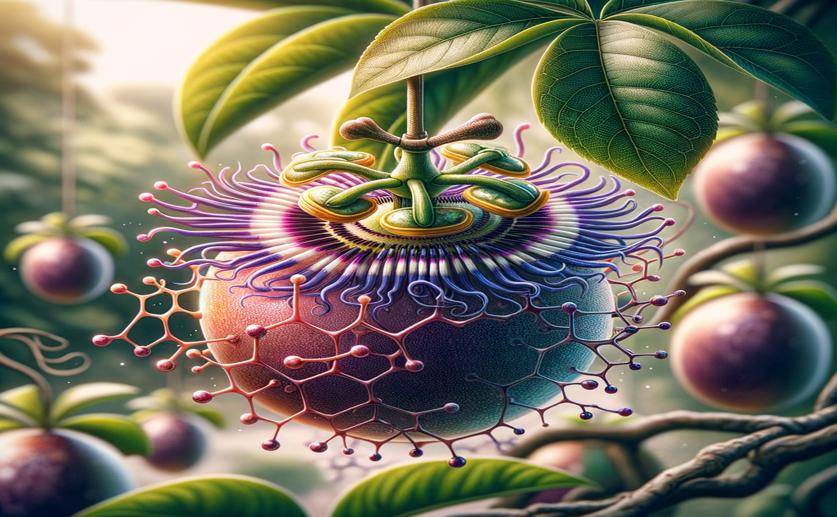
How Passion Fruit Genes Help in Sugar Accumulation
Jim Crocker
8th September, 2024

Image Source: Natural Science News, 2024
Key Findings
- Researchers from the Chinese Academy of Tropical Agricultural Sciences identified 16 invertase (INV) genes in passion fruit, crucial for sugar metabolism
- Several of these genes, especially PeCWINV5, showed significant responses to environmental stresses like drought, salt, cold, and high temperature
- Overexpressing PeCWINV5 in passion fruit led to higher levels of fructose, glucose, and sucrose, enhancing the fruit's sweetness and quality
References
Main Study
1) Genome-wide analysis of the passion fruit invertase gene family reveals involvement of PeCWINV5 in hexose accumulation.
Published 6th September, 2024
https://doi.org/10.1186/s12870-024-05392-y
Related Studies
2) Sugar input, metabolism, and signaling mediated by invertase: roles in development, yield potential, and response to drought and heat.
3) Sucrose metabolism: gateway to diverse carbon use and sugar signaling.
4) Molecular basis for optimizing sugar metabolism and transport during fruit development.



 27th July, 2024 | Jenn Hoskins
27th July, 2024 | Jenn Hoskins